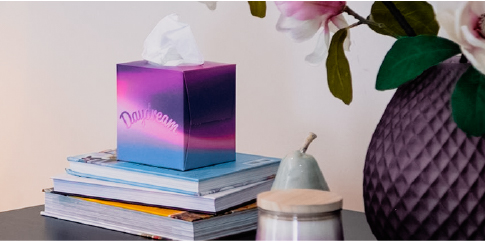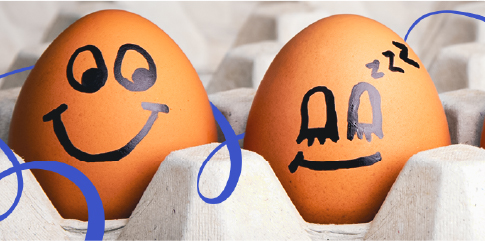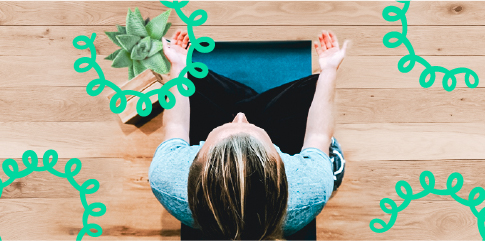Using the power of now
Mindfulness is about focusing on the present moment. Not dwelling on the past or worrying about the future. Being totally and fully aware of what you’re doing and where you are. At the same time, accepting how you’re feeling, what you’re thinking and all your bodily sensations. This has great therapeutic value. Becoming more aware of the present moment can help us enjoy the world around us more and understand ourselves better.
Mindfulness can improve your mental health because instead of being overwhelmed by our thoughts and feelings, we’re better able to manage them. So, rather than denying our feelings, embracing them, even when they are negative. Accepting whatever you’re feeling makes it easier to do something about it.
Mindfulness exercises
Almost anything can be turned into a mindful activity. It usually includes three elements: stopping, observing and returning. The stopping is about being mindfully aware, being in the moment and not thinking about something else. The observing is observing your feelings, focusing on what you’re doing. And lastly, returning, especially when you first start doing these exercises you’ll notice that your mind easily wanders. You must actively return to the moment at hand and focus, focus, focus.
- Drink a cup of tea
If you love tea, you’ll love this exercise! What could be less complicated and wonderful than drinking tea? Only this time, take the time to really take in the wonder. The sensations, the smells and the sounds, from when you start boiling the kettle to the moment you’ve finished your cup. Notice how it makes you feel, the colour, the shape of the cup and the sound of the kettle. Be aware of how your body reacts when you drink the tea. Rest in these precious moments.
- Look at a candle
Candles can have soothing colours and smells, but for the purposes of this exercise it’s all about looking at the candle flame. Watching the flame as it flickers and sways. Take ten minutes observing, let your mind wander. Think about what you’re thinking about.
- Take a mindful pause
We all live such busy lives, there’s almost no time to think. Our brain manages these millions of sensory inputs per second, by running something like 95% of our behaviour on autopilot. A mindful pause is the opposite of this. It’s time to slow your brain down. Taking off the autopilot, using our willpower and making conscious decisions. The more deliberate actions we take the more we stimulate and train our brain.
- Enjoy your food
Do you ever eat without thinking about it? Do you remember what you had for lunch yesterday? Eating can be one of the most pleasurable experiences there is, when you take the time to savour it. When you bring your full attention to eating you will be amazed by all the experiences you have been missing. Instead of wolfing down your food, take a moment and take a few deep breaths before eating. Listen to your body. What is it telling you? How hungry are you? If your body tells you it’s not hungry or doesn’t really like what you’re eating, stop eating. Eating is not a race to see who can finish the fastest, take your time. Be conscious of what you’re eating. What is on your fork? And how much is on your fork? Chew more, breathe more, in-between each mouthful. Your body will thank you for it and reward you with better health and less stress.
- The five senses exercise
You’ve lost your temper. You’re feeling angry. Frustrated even. What now? Well, stop. Right now. Decide that you’re going to have a mindful moment. Think about your five senses. Look around for five things you can see, four you can feel, three you can hear, two you can smell and one thing you can taste. Doing this exercise will calm your mind by using the five senses to focus on your environment rather than your thoughts.
Mindfulness is becoming increasingly popular and can be learned through everyday things, but also in universities, at work or with private lessons. It’s a gentle way to decrease stress, enhance your ability to deal with illness and recovery, decrease the symptoms of depression and improve your general health.












